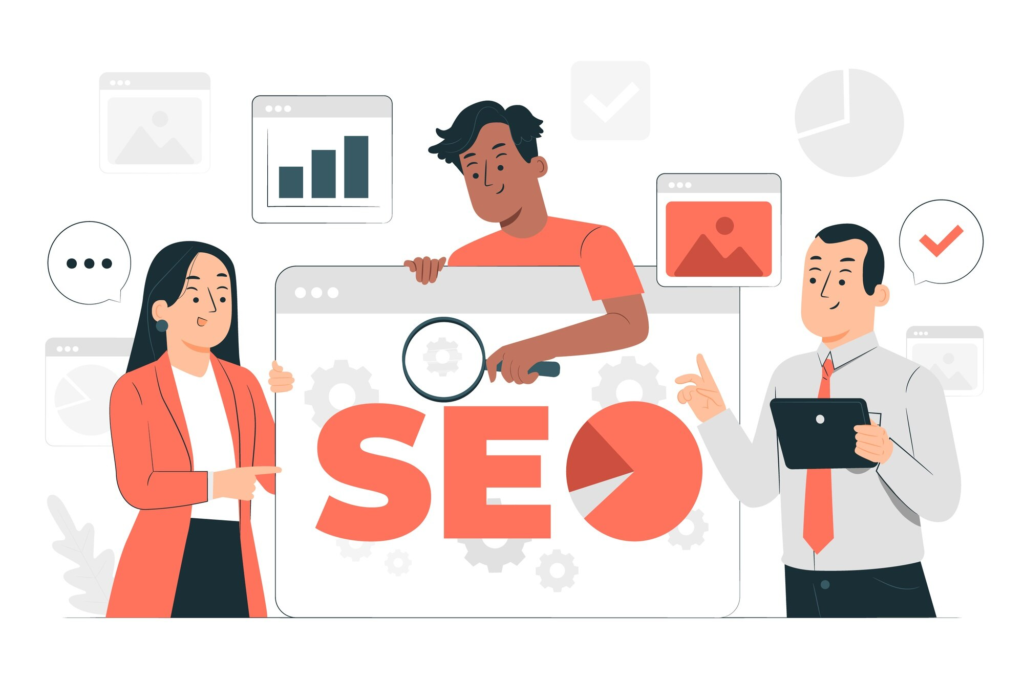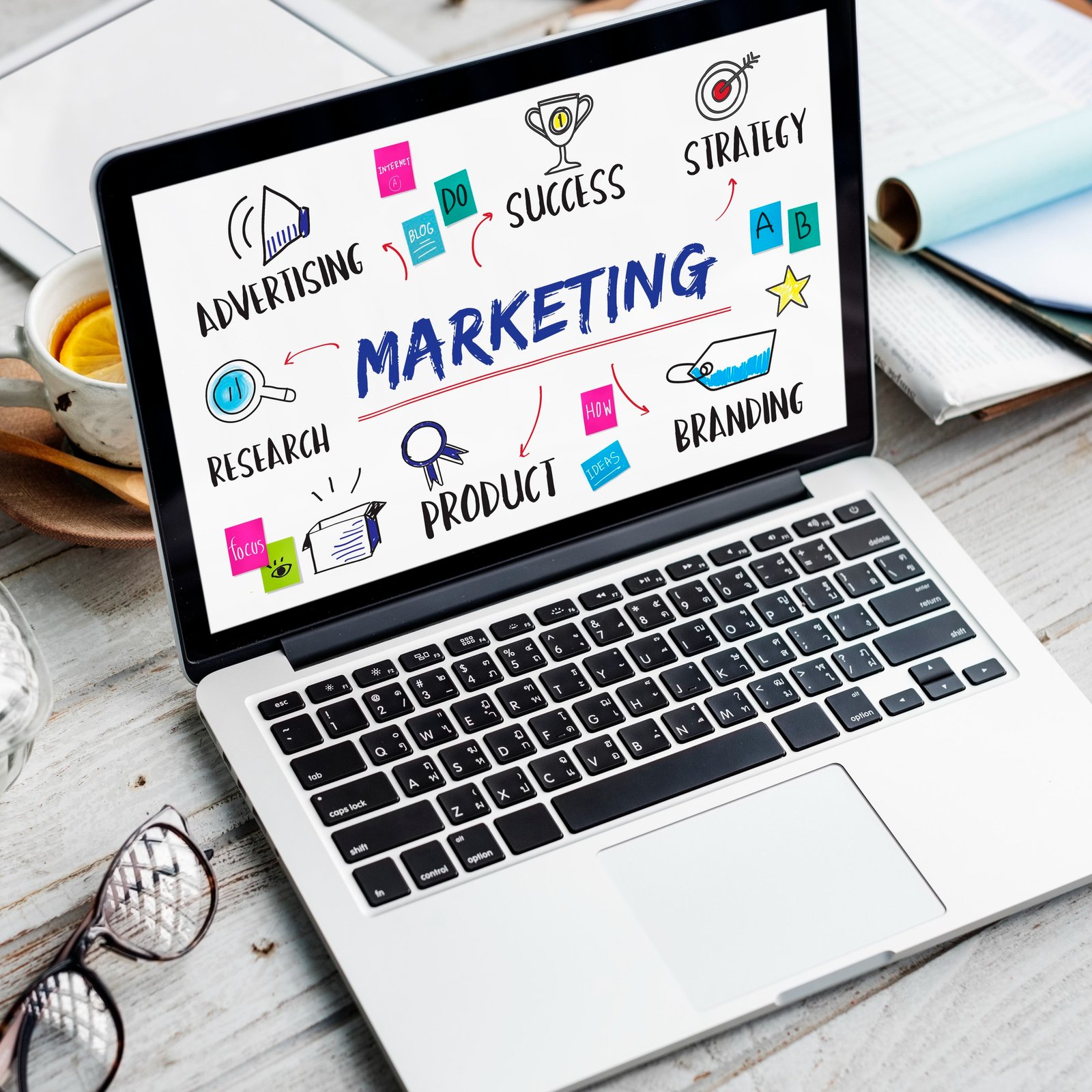Introduction to B2B Digital Marketing Trends
B2B digital marketing refers to the strategies and tactics employed by businesses to engage with other businesses through digital channels. As the landscape of digital marketing continues to evolve, understanding B2B marketing trends becomes increasingly crucial for organizations striving to maintain a competitive edge. The transition towards digital platforms for business transactions has altered the way companies interact, emphasizing the need for robust digital marketing strategies that cater not only to the present but also anticipate future shifts.
In recent years, technological advancements and changing consumer behaviors have reshaped the B2B digital marketing landscape. Businesses are increasingly leveraging digital tools to reach potential clients, nurture leads, and enhance customer relationships. Key trends include the adoption of data-driven marketing techniques that rely on analytics to target specific audiences effectively. The integration of artificial intelligence and machine learning is also becoming prevalent, helping businesses automate processes and personalize marketing efforts.
Moreover, the importance of content marketing cannot be overstated. High-quality, informative content tailored to the needs of target audiences plays a vital role in establishing authority and trust among B2B clients. Organizations are now focusing on creating valuable content that resonates with their audience, thus enhancing engagement and loyalty. Social media platforms, particularly LinkedIn, have also gained prominence as essential tools for B2B marketers, enabling them to connect with industry peers and prospects in real-time.
As we look ahead to 2025, businesses must stay attuned to these developments and be prepared to adjust their strategies accordingly. The success of B2B organizations hinges on their ability to adapt to emerging trends, making it imperative to explore powerful marketing strategies that can drive results in the ever-changing digital landscape. The ensuing sections will delve into these strategies, offering insights for businesses eager to enhance their B2B digital marketing efforts.
The Rise of Personalization in B2B Marketing
In recent years, the landscape of B2B marketing has been evolving significantly, with personalization emerging as a central focus for organizations aiming to connect meaningfully with their clients. Personalization in B2B marketing refers to the tailored approach of delivering content, products, and experiences that resonate with individual businesses, rather than relying on one-size-fits-all strategies. As we look towards 2025, this trend is expected to gain further momentum as companies increasingly recognize the value of individual customer insights.
Implementing personalized marketing strategies involves leveraging data analytics, customer segmentation, and targeted messaging to understand and cater to the unique needs of clients. By analyzing client behavior, preferences, and purchasing patterns, businesses can design customized marketing campaigns that enhance customer engagement. For instance, utilizing CRM systems alongside advanced analytics tools allows organizations to create targeted email campaigns that speak directly to the interests of different segments within their audience.
Moreover, personalization is not just limited to content; it extends to the overall customer journey. Businesses can enhance the buying experience by personalizing web interactions, recommending products based on previous purchases, and even customizing pricing models to fit the client’s budget. Such tailored experiences not only improve conversion rates but also foster long-term relationships. Customers are more likely to remain loyal to brands that understand their specific requirements and deliver personalized solutions.
As we advance into 2025, the demand for personalization in B2B marketing will undoubtedly increase, pushing companies to examine their marketing practices critically. It will be imperative for organizations to invest in technology that supports personalization and to cultivate a customer-centric culture that prioritizes the unique needs of clients. By embracing personalized marketing strategies, businesses can position themselves effectively to thrive in a competitive marketplace.
Utilizing AI and Automation for Efficiency
In the realm of B2B digital marketing, the integration of artificial intelligence (AI) and automation is revolutionizing how businesses interact with their clients and streamline their operations. These advanced technologies are not merely trends; they represent substantial shifts that enhance overall operational efficiency while optimizing marketing outcomes. AI can analyze vast amounts of data in real-time, providing companies with valuable insights that inform decision-making and strategy development.
One of the key advantages of utilizing AI in marketing is its ability to identify trends and customer behaviors through data analysis. This capability allows businesses to refine their strategies and tailor their offers to meet specific client needs. For instance, predictive analytics, powered by AI, can forecast customer responses and preferences, facilitating the design of highly targeted campaigns that resonate with potential customers.
Moreover, automation tools play a crucial role in streamlining marketing processes. Tasks that were once time-consuming, such as email marketing, social media posting, and lead nurturing, can now be executed efficiently through automated systems. This not only saves time but also reduces the likelihood of human error, ensuring a consistent and coherent messaging strategy across all channels. Furthermore, automated systems can be set up to trigger responses based on customer actions, enhancing engagement and interaction without requiring constant manual oversight.

The combination of AI and automation extends beyond operational efficiency; it also enhances customer interactions. Chatbots, for example, are AI-driven tools that provide immediate support to users, answering queries and guiding them through the sales funnel. This immediacy improves customer satisfaction and generates valuable data for refining future marketing strategies. By leveraging these technologies, businesses can create a more dynamic and responsive marketing environment that adapts to changing customer needs and expectations.
Content Marketing: New Formats and Approaches
As we move towards 2025, content marketing in the B2B sector is evolving at an unprecedented pace. Businesses are transitioning from traditional content formats to more innovative approaches that capture the attention of their target audience. The rise of interactive content and video marketing is a testament to this shift, as these formats have proven to significantly enhance audience engagement and retention.
Interactive content, such as quizzes, polls, and infographics, allows businesses to actively involve their audience, fostering a connection that static content cannot achieve. These formats not only provide valuable insights into customer preferences but also encourage participation, making the audience feel invested in the brand’s message. This shift towards interaction can help businesses gather data that informs future marketing strategies, tailoring content to better meet the needs of their audience.
Video marketing is another critical component of contemporary content strategies. With the increasing popularity of platforms like YouTube and LinkedIn, video content has become a powerful tool for B2B marketers. Companies can leverage video to convey complex information in an easily digestible format, showcasing product demonstrations, customer testimonials, or thought leadership discussions. Live streaming also provides an avenue for real-time interaction, enabling brands to answer questions and engage with their audience instantaneously.
Moreover, creating compelling narratives that resonate with the target audience is essential for effective content marketing. Businesses should focus on storytelling techniques that highlight their brand values and the benefits of their products or services. By establishing an emotional connection and communicating a clear narrative, businesses can enhance their visibility and establish themselves as thought leaders in their industry.
In this rapidly evolving landscape, B2B companies must adapt and innovate their content marketing strategies to stay relevant and effectively connect with their audience. Engaging formats like interactive content and video are not merely trends but essential elements that can drive higher engagement and success in the competitive B2B market.
The Importance of Social Selling
In the landscape of B2B digital marketing, social selling has emerged as a pivotal strategy that cannot be overlooked. As organizations strive to increase their brand presence and foster meaningful connections with potential clients, the effective utilization of social media platforms becomes essential. Social selling involves engaging with prospects through social networks, facilitating not only direct interactions but also nurturing relationships that can lead to sustainable partnerships.
The power of social selling lies in its ability to create authentic interactions. Businesses that adopt social selling techniques can position themselves as trusted advisors rather than mere service providers. By sharing valuable content, participating in pertinent conversations, and actively engaging with their audience, companies can establish authority within their industry. This approach not only boosts brand awareness but enhances the overall customer experience, ultimately leading to increased customer loyalty.
Moreover, social selling plays a vital role in lead generation. By leveraging platforms such as LinkedIn, organizations can identify and connect with key decision-makers in their target market. Tailoring messages and outreach efforts to address specific pain points and industry challenges resonates more effectively with potential clients than traditional sales tactics. Engaging in these personalized interactions reduces the distance between the seller and buyer, facilitating smoother transitions through the sales funnel.
The advent of data analytics further enhances the effectiveness of social selling strategies. By analyzing engagement metrics and audience behavior, businesses can refine their approach to better meet the needs of their clients. This continuous feedback loop enables companies to adapt their tactics in real-time, ensuring they remain relevant and effective. In conclusion, as we look towards the future of B2B digital marketing, the importance of social selling as a method for building relationships and generating leads cannot be overstated. Organizations that embrace this trend are likely to see significant advantages in their marketing efforts and overall success.
Emphasis on Data-Driven Decision Making
In the rapidly evolving landscape of B2B digital marketing, the emphasis on data-driven decision making has emerged as a critical factor for success. Businesses are increasingly recognizing the immense value of leveraging data analytics to guide their marketing strategies. By tapping into various data sources, organizations can glean insights into customer behavior, preferences, and trends, ultimately enabling them to tailor their offerings more effectively.
Utilizing data analytics allows businesses to understand their target audience on a deeper level. With tools such as customer relationship management (CRM) systems and advanced analytics platforms, companies can track engagement metrics, assess customer feedback, and analyze purchasing patterns. This information not only provides a clear view of the clientele but also helps identify potential areas for improvement in marketing campaigns. As a result, organizations can refine their messaging and delivery methods to better resonate with their audience.

Moreover, the application of data analytics extends beyond mere observation; it empowers businesses to optimize their campaigns in real-time. By continuously monitoring key performance indicators (KPIs), companies can adjust their strategies based on what the data reveals. For instance, if certain content formats show higher engagement rates, marketers can allocate resources toward producing similar materials. This agile approach to marketing fosters efficiency, ensuring that budgets are spent on strategies that yield the highest returns.
In conclusion, cultivating a strong focus on data-driven decision making is pivotal for B2B marketers aiming to enhance their outreach efforts and improve marketing outcomes. As data technologies continue to advance, those organizations that effectively harness analytics will not only stay ahead of the competition but also achieve sustained growth and success in their digital marketing endeavors.
Sustainability and Ethical Marketing Practices
In recent years, sustainability and ethical marketing practices have become focal points for businesses worldwide. As consumers increasingly demand accountability and transparency from brands, it is imperative for B2B companies to align their marketing strategies with sustainable practices. Integrating sustainability into branding not only cultivates a positive corporate image but also appeals to a growing demographic of environmentally-conscious clients.
One of the key strategies to implement sustainable marketing is to adopt eco-friendly practices throughout the supply chain. This can include using sustainable materials, reducing carbon footprints, and ensuring fair labor practices. When a business demonstrates its commitment to the environment and social responsibility, it enhances its brand reputation and builds trust with consumers. For instance, companies that prioritize sustainability and communicate this effectively in their marketing are more likely to resonate with stakeholders who value ethical considerations.
Moreover, businesses can leverage storytelling to convey their sustainability initiatives. By sharing authentic narratives about their commitment to ethical practices and environmental stewardship, companies can create a deeper emotional connection with their audience. This not only differentiates them from competitors but also fosters loyalty among clients who are increasingly prioritizing ethical considerations in their purchasing decisions.
Collaboration is another crucial aspect. B2B companies can partner with organizations that share similar values, thus amplifying their sustainability efforts. By participating in collective initiatives or industry standards, businesses can enhance their credibility and showcase their dedication to ethical practices.
Ultimately, the integration of sustainability and ethical marketing practices will shape the future of B2B strategies. As markets evolve, businesses that proactively adopt these values will not only satisfy consumer expectations but also prosper in an increasingly conscientious business environment.
Integrating Multi-Channel Marketing Strategies
In the rapidly evolving landscape of B2B digital marketing, adopting a multi-channel marketing strategy has become essential for businesses aiming to enhance their visibility and engagement with target audiences. This approach enables companies to leverage various digital platforms, such as email, social media, and search engine optimization (SEO), to create a cohesive and effective marketing strategy. By integrating these channels, businesses can ensure a seamless experience for potential clients, ultimately driving greater results.
One of the primary advantages of a multi-channel strategy is its ability to reach prospective clients through multiple touchpoints. For instance, a company may initiate contact via an email campaign, subsequently reinforcing the message through engaging posts on social media platforms. This consistent messaging across different channels can help build brand recognition and trust among target audiences, thus increasing the likelihood of conversion.
To successfully implement an integrated multi-channel approach, businesses must consider the following strategies. First, developing a comprehensive content calendar allows for the incorporation of various channels, ensuring that messaging remains aligned and relevant. This includes planning social media posts that complement email campaigns, aligning blog content with SEO efforts, and maintaining a consistent tone and style across all platforms.
Another key element is data analysis. By tracking customer interactions across different channels, marketers can gain invaluable insights into their audience’s behaviors and preferences. This data can then inform campaign adjustments, enabling businesses to optimize their marketing efforts for maximum impact. Utilizing marketing automation tools can also streamline this process, allowing for the efficient management of content distribution and audience engagement.
Ultimately, a multi-channel marketing strategy empowers B2B companies to create a richer, more engaging experience for potential clients. This holistic approach not only enhances visibility but also fosters a stronger connection between businesses and their target audiences, contributing to sustained growth and success in the digital realm.
Conclusion: Preparing for the Future of B2B Digital Marketing
As we look toward 2025, the landscape of B2B digital marketing is poised for significant transformation. The trends and strategies discussed throughout this article highlight the need for businesses to evolve with the changing digital environment. Companies that prioritize innovative approaches, such as leveraging artificial intelligence, embracing personalization, and enhancing customer experience, will be better equipped to navigate the competition.
Moreover, the implementation of data-driven decision-making will become critical in shaping successful marketing campaigns. Organizations must learn to harness analytics not only to track performance but also to gain insights into customer preferences and behaviors. This strategic application of data can lead to more effective targeting and improved return on investment.
In addition, fostering strong relationships with customers through community engagement and content marketing is essential. As businesses shift their focus toward creating value for their clients, nurturing long-term partnerships will become a core element of B2B digital marketing success. The emphasis on trust and transparency will further strengthen these connections, fostering loyalty among clients.
Social media will also play a crucial role in shaping how businesses communicate and interact with their customers. As platforms evolve, businesses must remain agile and adapt their strategies to engage audiences through emerging channels, ensuring they remain relevant. Influencer marketing and advocacy can amplify brand messages, bringing authenticity and credibility to corporate communications.
In summary, preparing for the future of B2B digital marketing necessitates a proactive approach. By embracing the outlined strategies, businesses can position themselves to thrive in the competitive landscape of 2025 and beyond. The key will be to stay informed, adaptable, and committed to leveraging the most effective tools and techniques at their disposal.





